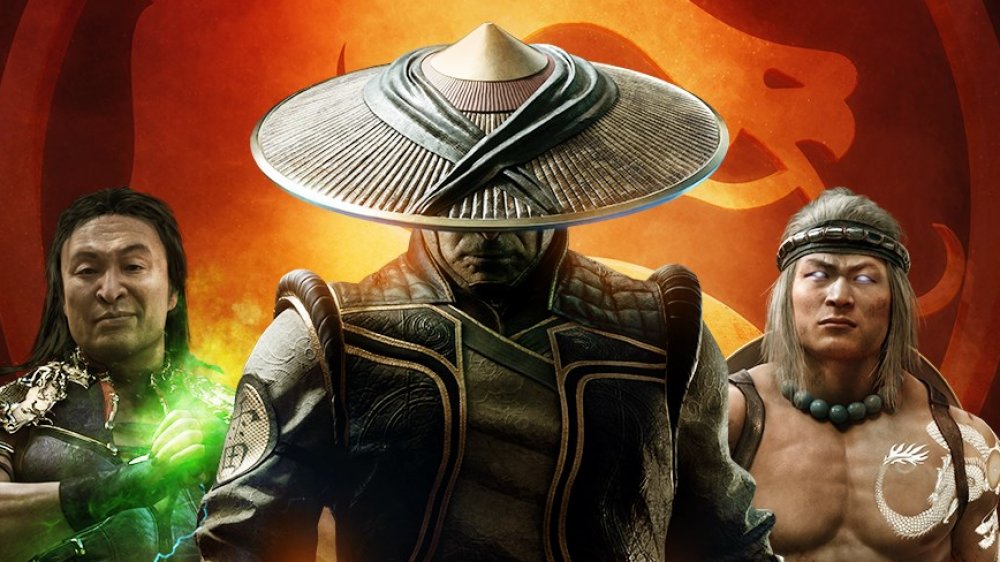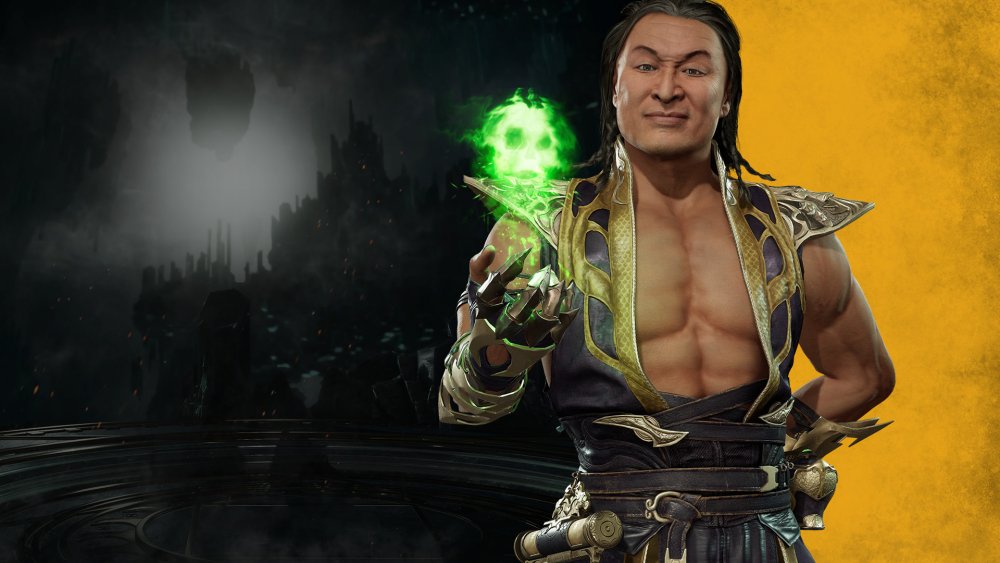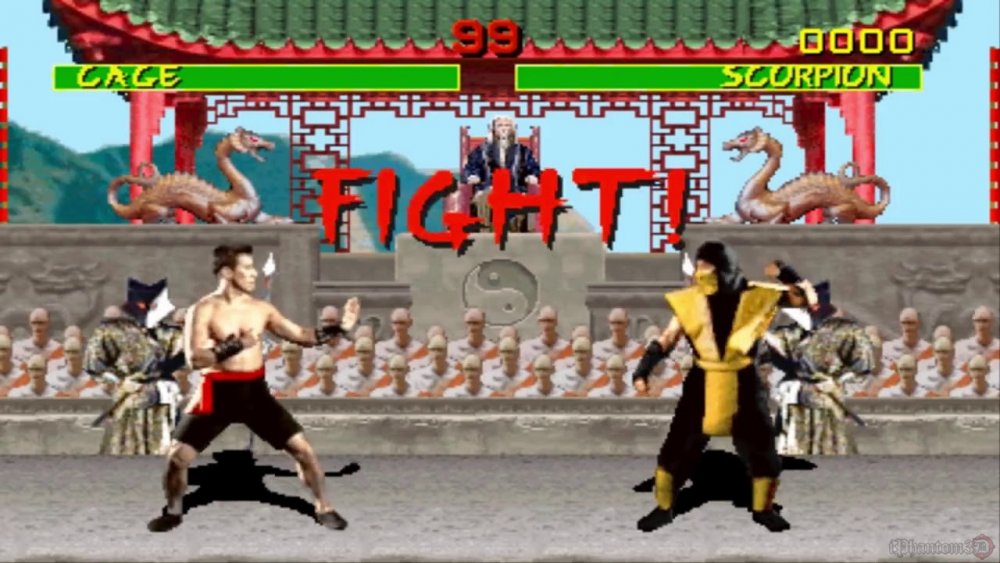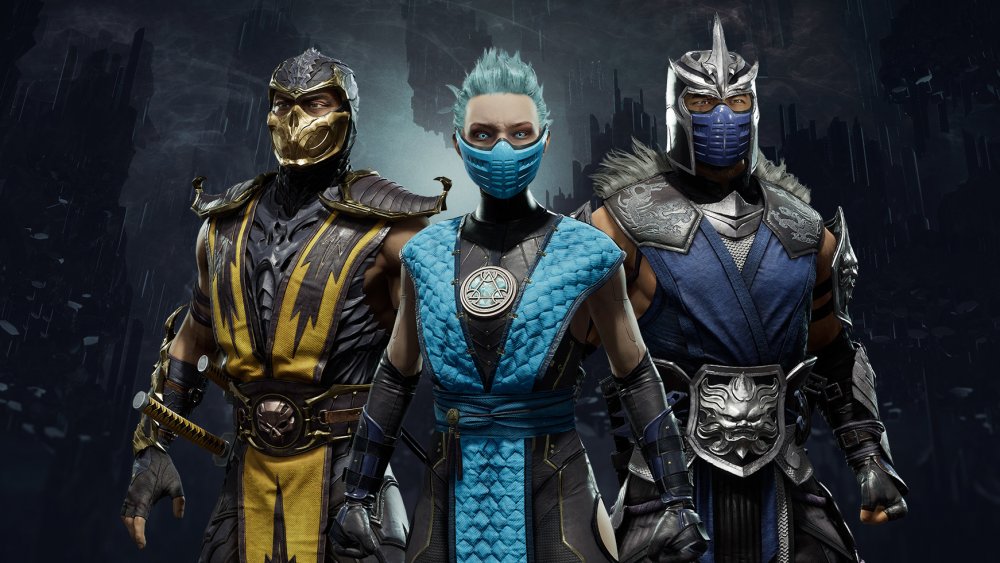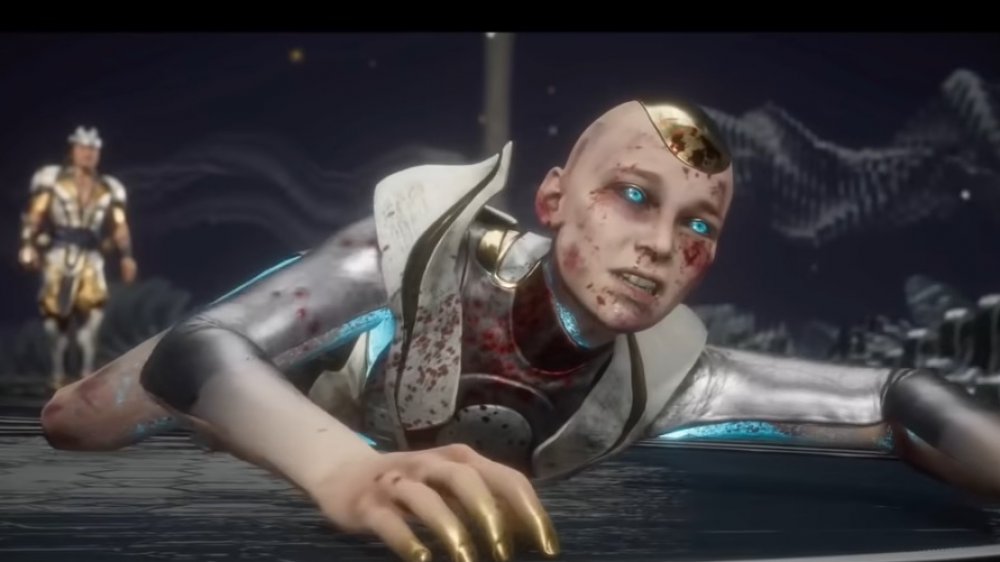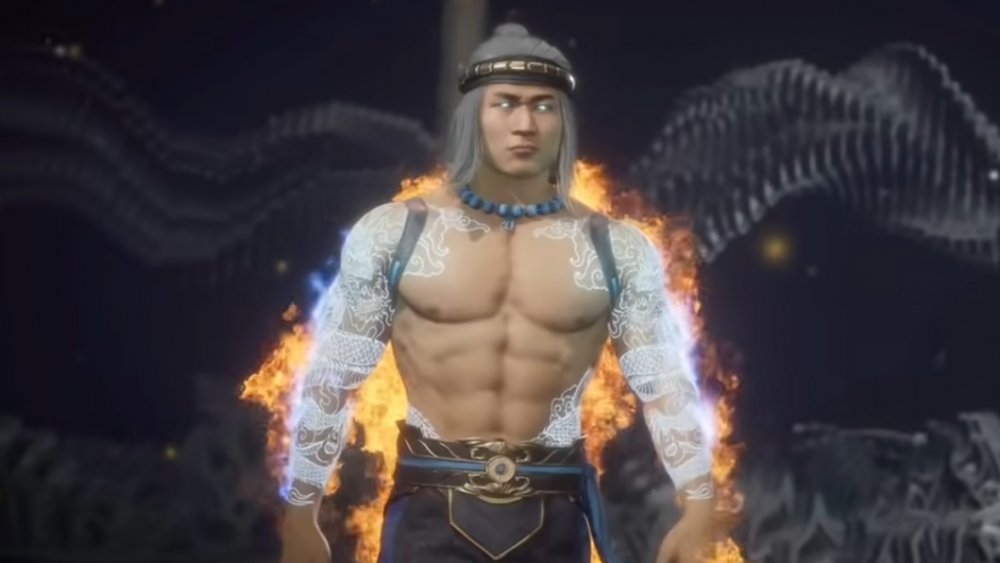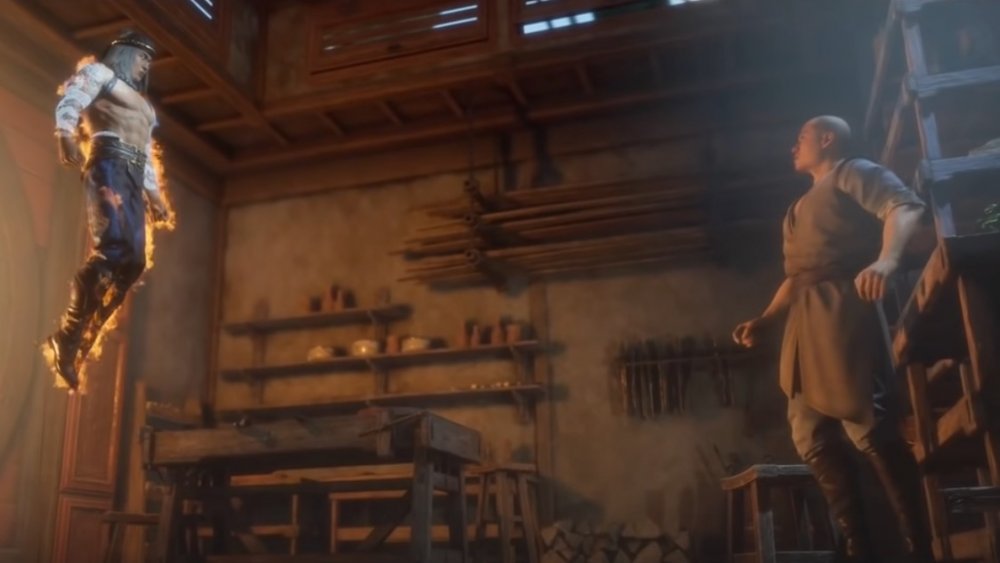The Ending Of Mortal Kombat 11: Aftermath Explained
Given the Mortal Kombat series is composed of a bunch of fighting games focused on beating up and mutilating your enemies, you'd be forgiven for forgetting the nuances of the story and intricate lore that has added depth to the gameplay. If you've been following the narrative from the beginning, you know it's become as convoluted as, well, anything involving time travel generally is. Pretty much everyone in all the different realms has died and been resurrected, and trying to keep track of the power changes that make up the world requires a collection of flow charts, family trees, and timelines.
Mortal Kombat 11 released in March 2019 and the Aftermath expansion followed in May 2020. It adds an all-new story, plus three playable characters: Sheeva, Fujin, and Robocop. Naturally, the story features a brand-new ending. The question is, what does it mean? And how are the possibilities revealed in Aftermath going to affect the story going forward? Take a look.
Mortal Kombat's backstory is pretty involved already
The Mortal Kombat games take place in a universe that features a group of realms (dimensions) ruled by Elder Gods. These Elder Gods enjoy conquering other realms, causing the landscapes of each overtaken realm to meld with that of the dominant one. To control the invasions, the gods decided that, once every generation, they would hold a tournament in which champions from the different realms would fight. If one realm declared Mortal Kombat on another and won 10 tournaments, it would win the right to take over.
Early on, Shinnok the Elder God tried to take over Earthrealm but Raiden, the god of Thunder, battled him in a giant war that killed the dinosaurs, toppled civilizations and did a lot of other damage. Raiden imprisoned Shinnok in the Netherrealm.
The realm of Outworld has been ruled by a succession of power-hungry emperors, with the first being Onaga, the Dragon King. However, his adviser, Shao Kahn, deposed him and he and his sorcerer, Shang Tsung, continued Onaga's legacy of trying to conquer everybody.
Shao Kahn took the realm of Edenia and then set his sights on Earthrealm. Sindel, the captured queen of Edenia, committed suicide while creating a ward on Earth that made it impossible for Shao Kahn to go there. So, he sent Shang Tsung to the Mortal Combat tournament — and Outworld won nine times.
The story of the Mortal Kombat games, in a nutshell
In the original three Mortal Kombat games, Liu Kang puts together a veritable army of champions to protect Earthrealm in the tournament, and they win multiple times and liberate Edenia despite cheating by Shang Tsung.
By Mortal Kombat 4, Shinnok has been released and is angry, so he and Shang Tsung team up. Once he is defeated, another alliance is formed between enemies of Earthrealm Quan Chi and Shang Tsung, who kill Shao Kahn and then Liu Kang. Raiden assembles a team to get revenge for Liu Kang's death, but they all die — except for Raiden. At this point, the games are not numbered and have subtitles such as The Deadly Alliance, Deception, and Armageddon. You can pretty much imagine how that goes.
In the 2011 Mortal Kombat game (the ninth in the main series) the events of the first three games are rebooted through time travel. Raiden keeps experiencing visions that say, "He must win," and eventually figures out this means Shao Kahn. Liu Kang kept beating Shao Khan without killing him, allowing Shao Kahn to finally destroy everyone. So, the new plan was to let Shao Kahn win, breaking the Mortal Kombat rules and putting the Elder Gods squarely on Raiden's side. This allowed Raiden to fight Shao Kahn and beat him, saving everyone except Liu Kang. Until this all turned out to be a takeover bid by Shinnok.
The plot of Mortal Kombat 11: Aftermath and Kronica's role
So much for the history lesson. Enter Kronika in Mortal Kombat 11, a Titan who happens to be the mom of now-decapitated Shinnok and Cetrion, the Elder Goddess of Life and Virtue. She's the main antagonist of Mortal Kombat 11, and she becomes the secondary antagonist of Aftermath. Seeing an imbalance between good and evil, Kronika tries to reset the timeline once again to erase Raiden's interference. In this part of the story, Liu Kang becomes a Fire God by merging with Raiden. He eventually defeats Kronika and tries to restart history with the help of Raiden.
In Mortal Kombat 11: Aftermath, Shang Tsung, Fujin and Nightwolf have been released from Kronica's imprisonment by her death. They tell the newly-made Fire God that if he uses her Hourglass to reshape history without Kronika's crown they'll destroy all the realms, and it is decided they'll go back in time to obtain the crown. Along the way they pick up Shang Tsung, who eventually tricks Fujin into giving him the crown and uses Sindel and Shao Kahn to reach the Hourglass.
The glorious future of Shang Tsung
Once Shang Tsung has the crown and has betrayed his comrades, he absorbs their souls. Then he turns his attention to Kronika, easily defeating her. In taunting her before also absorbing her soul, he tells her that surely service to him would have been better than death. He now expects every realm to submit to him.
At this point, Fire God Liu Kang appears, and players are given the option to play either character. If Shang Tsung is chosen and defeats Liu Kang, he absorbs Liu Kang's soul, turning him into nothing but a skeleton before making his way to the Hourglass. Another cutscene follows, showing Shang Tsung, now wielding a great deal of power, speaking to his servants Fujin and Raiden. They tell him that Outworld, Earthrealm and Netherrealm have been conquered while Outrealm and Chaosrealm will be next per his command.
"It has begun," Shang Tsung says along with an evil laugh, completing the alternate ending.
Liu Kang triumphs and takes control of time
In the "canon" ending, which is activated once the player chooses Liu Kang and fights Shang Tsung, Liu Kang wins the day. He appears to draw power from the Hourglass to ignite his magical fire powers and directs them at Shang Tsung. He says, "No more timelines will be twisted by your evil" as Shang Tsung is erased from existence rather excruciatingly. Liu Kang also takes back the Crown of Souls and moves over to the Hourglass to forge his New Era.
This ending is a fitting one that ends the antagonism between two worthy rivals. Not that anyone ever stays dead in this series. At this point, most players are probably expecting the cutscenes to end, but Mortal Kombat 11: Aftermath has one more surprise in store for fans.
The rebirth of Kung Lao as a Hero
Following Liu Kung's victory and use of the Hourglass, the scene switches over to an aerial view of Shaolin monks training. Then, in a dark room, the back of Kung Lao is seen, and he's making a statue. The Fire God Liu Kang appears to him, telling him he is humble, not like the Kung Lao he knew. He says he has chosen Kung Lao as his champion and he must be trained. "Trained? For what?" Kung Lao asks — and Liu Kang simply smiles.
The scene brings the Mortal Kombat plot full circle, since this is clearly not just Kung Lao of the weaponized hat, but the Great Kung Lao, ancestor to Earth champions Liu Kang and Kung Lao. That's clear from a few choice details: the fact that he doesn't know who Liu Kang is, and the fact that the jade figurine Kung Lao is carving is the one that Kung Jin tried to steal in Mortal Kombat 10.
Basically, the cycle continues and fans have something to look forward to in the nigh guaranteed Mortal Kombat 12, which will almost certainly make the series even more difficult to follow than it is now.

